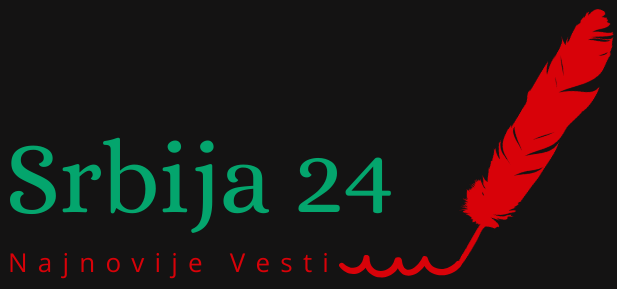Herman Hesse wrote „The Art of Idleness“ over a hundred years ago, a work that celebrates introspection, relaxation, and enjoying the little things, as opposed to the hypercompetitive and fast-paced world of today. Many other artists and philosophers, such as Oscar Wilde, Henri Matisse, Bertrand Russell, and Hannah Arendt, have also emphasized the importance of „doing nothing“. German romantic writer Friedrich von Schlegel once said that laziness is a divine fragment of godlike existence left to man from paradise.
While ancient thinkers found idle time to be fertile ground for new ideas, it seems that modern times have pushed this significant method into the background, until a new generation shook off the dust and turned it upside down.
Many media outlets have been reporting on the trend of „bed rotting“, which has garnered hundreds of millions of views on TikTok. Even those unfamiliar with TikTok trends have likely heard of the „goblin mode“, the precursor to this movement, which the Oxford Dictionary even declared as the word of the year 2022. Both involve prolonged lounging in bed and „doing nothing“, or simply enjoying activities that require minimal involvement but maximum pleasure, such as binge-watching series, mindlessly scrolling social media, and snacking on favorite snacks. Most importantly, they can do so without any guilt.
For many members of the Generation Z, this is a way to escape the world obsessed with productivity and success and give themselves the necessary break that has been popularized as a „self-care“ method. However, many of their older contemporaries see such „self-care“ as merely reinforcing deeply rooted stereotypes about this generation being „lazy,“ „selfish,“ and „obsessed with pampering themselves.“
Is this a rebellion against the tyranny of ambition, or is it just a superficial trend that will fade away like the „cinnamon challenge“?
Are young people simply „lazy“?
While the Generation Z was still playing in the sand, their predecessors, the millennials, entered the job market during the largest global economic crisis since the Great Depression. For those from the Balkans, after a brief respite in the early 2000s, it was just a continuation of the painful 1990s that left an indelible mark on their childhood.
Such circumstances and the continuous struggle for survival led psychologists to label millennials as the „burnout“ generation. Many of them, along with Generation X and the famous Baby Boomers, who were raised to value hard work and diligence, see „bed rotting“ as just another proof that the youth are „irreversibly lazy.“
Sociologist Milica Veskovic Andjelkovic explains that the root of such stereotypes has been significantly influenced by the change in societal values.
„Once children were raised to be more independent, but today the culture of parenting is somehow focused on children again. This gives them a sense of security but also makes them somewhat dependent on others. Furthermore, due to technological and educational advancements, older generations are less likely to see them performing manual work,“ explains Veskovic Andjelkovic.
Another reason why older generations perceive young people as „lazy“ is that social media events are simply more visible than real-life events, as per our interlocutor.
„It is incorrect to judge young people solely based on what we see on social media and reality shows, which unfortunately are more accessible than information about what our young people are doing in science. People from that media discourse and what is more frequently talked about draw the wrong conclusions about their lack of productivity and lack of ambition. Therefore, my impression is that attention should be directed towards the positive achievements of the youth in Serbia, which are genuinely many but are rarely talked about. Of course, this is a question of broader culture, perhaps even a political goal,“ says the sociologist.
Psychologist and founder of the Institute for Digital Communications, Ana Mirkovic, shares the same views, adding that trends like „bed rotting“ are a way to draw attention to the fact that new generations, entering the job market, are facing ever-increasing pressure.
„The market is more competitive than ever, and the entire world is at everyone’s fingertips. Today, people from all over the world can apply for the same positions. Trends like ‘bed rotting’ could be their guard against the high demands of society and family expectations,“ says our interviewee.
In other words, anyone who spends too much time watching TikTok and Instagram posts by young influencers may easily overlook the fact that Generation Z is considered the most anxious generation of today. Behind the beautiful, young faces and sculpted bodies, next to the perfectly organized fridge shelves, lies great stress – so much that 33 US states have sued Meta, the parent company of Facebook and Instagram, for the alleged harm these platforms have caused to the mental and physical health of young people.
The stress among young people has spread worldwide to the point where, according to a report on the status and needs of young people by the National Youth Organization of Serbia last year, over 72% of people aged between 15 and 30 in our country often face stress, and over 52% suffer from anxiety.
Study participants, a total of 1,209 people, cited a variety of stressors – everyday life obligations, school, university, work, as well as events in the country.
Mirkovic explains that these results are also a consequence of several other factors.
„These are the effects of information spam, the pressure of all these trends, and the feedback they receive from social media. There is also the promotion of certain values that are unattainable for young people, especially at that age,“ explains Mirkovic.
All the existing problems in young people’s lives were further exacerbated by the COVID-19 pandemic when it became evident that it is not necessary to take off pajamas and put on a suit to start the workday.
„Now, an entire generation has emerged for which this has been served as a supermodel. Members of Generation Z will define remote work as freedom. However, people are social beings, and interaction through screens cannot satisfy our needs for direct communication – to look someone in the eye, feel the warmth of their skin, go to lunch together…“ explains the psychologist.
In the fight against stress and feelings of overwhelm, physical activity is extremely important, and our interlocutor advises daily walks lasting at least half an hour.
„This is already a small dose of joy, and there is also art and cultural content. Art exists to relax people in everyday life. Culture is a source of true freedom. Instead of lying in bed as a counter to the system, it is much better to enrich the soul and feed it to cope with the changes in the world,“ concludes Ana Mirkovic for Euronews Serbia.






